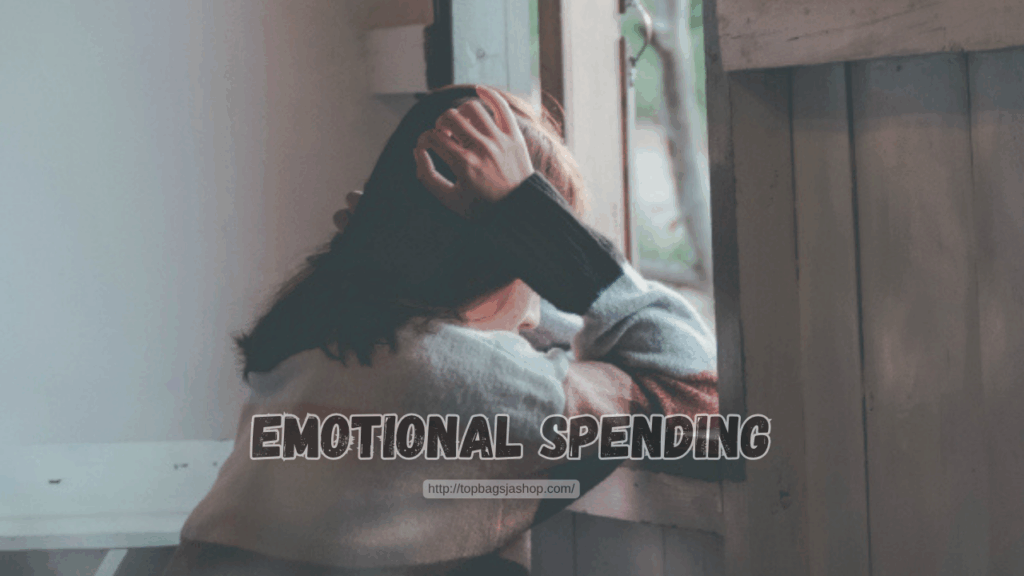
Self-care is essential for maintaining balance and emotional health. Taking time for yourself, finding joy, and rewarding progress can all support a healthy mindset. However, when “treating yourself” turns into impulsive shopping to escape stress or sadness, it can become emotional spending. What starts as comfort can quietly lead to financial strain, guilt, and anxiety. Recognizing when self-care has turned costly is the first step to reclaiming emotional balance and financial peace.
For individuals in recovery or those coping with mental health challenges, emotional spending can mirror the same cycles of escape found in substance or behavioral addictions. Understanding the signs early can prevent emotional and financial setbacks while supporting lasting healing.
What Is Emotional Spending?
Emotional spending happens when you buy things not out of need or genuine joy, but to cope with negative emotions like loneliness, anxiety, or frustration. In the moment, shopping may bring relief or excitement, offering a sense of control when life feels overwhelming.
But once the high fades, feelings of regret or stress often replace the temporary comfort. This creates a pattern of emotional dependence on spending, where shopping becomes a way to manage emotions instead of addressing their root causes. Over time, this behavior can lead to debt, shame, and deeper emotional distress.
The Fine Line Between Self-Care and Emotional Spending
Healthy Self-Care: Restorative and Intentional
True self-care focuses on nurturing your physical, emotional, and spiritual well-being. Activities like journaling, exercising, connecting with loved ones, or spending time in nature bring lasting fulfillment and self-awareness.
Emotional Spending: Impulsive and Escapist
When shopping becomes an emotional crutch, it’s usually impulsive and reactive. You might find yourself browsing online stores after a hard day, convincing yourself that a purchase will make you feel better. While the initial rush may help momentarily, it doesn’t address the deeper issue—and it often leaves you feeling worse afterward.
Learning to distinguish between genuine self-care and emotional avoidance is key to creating healthier coping habits.
How Emotional Spending Can Lead to Debt and Anxiety
Emotional spending often comes with hidden costs. Each impulsive purchase adds up, creating financial pressure that can quickly spiral into debt. As debt increases, so does anxiety and guilt, leading many to shop again as a way to relieve the stress—continuing the cycle.
This financial-emotional loop mirrors the reinforcement pattern found in other addictive behaviors. For individuals in addiction recovery, recognizing emotional spending as a potential relapse trigger or substitute habit is critical. It can serve as a warning sign that deeper emotions need compassionate attention rather than avoidance.
Signs You Might Be Emotionally Spending
- You shop to “feel better” or reward yourself after stress.
- You hide purchases or feel ashamed after buying.
- You use credit cards impulsively or avoid checking your balance.
- Your mood worsens when you can’t shop.
- You feel relief while shopping, followed by regret later.
These patterns signal that shopping may have shifted from self-care to self-soothing—a form of emotional avoidance that can keep you stuck in cycles of stress and guilt.
Healthier Ways to Cope and Practice Real Self-Care
1. Pause and Reflect Before Buying
When you feel the urge to shop, take a moment to pause. Ask yourself: “What emotion am I trying to soothe right now?” Awareness is the first step toward breaking the automatic spending response.
2. Replace the Habit with Healing Activities
Try journaling, meditating, or going for a walk instead of browsing online stores. Creative outlets like painting or cooking can also redirect energy toward growth and relaxation.
3. Build Emotional Support Networks
Isolation feeds emotional spending. Reach out to supportive friends, family, or recovery communities. Sharing how you feel can reduce the emotional pressure that often triggers spending urges.
4. Seek Professional Guidance
Therapists, financial counselors, and recovery specialists can help identify emotional triggers behind spending habits. At Top Bags Jashop, we understand that emotional health and financial health are deeply connected. Our holistic and faith-based care options help individuals develop self-awareness, emotional regulation, and practical coping strategies.
Choosing Emotional Freedom Over Impulsive Spending
Recognizing emotional spending is not about guilt—it’s about awareness and healing. True self-care doesn’t drain your wallet or cause regret. It nourishes your mind, body, and spirit. By understanding the emotional patterns that drive overspending, you can begin building a healthier relationship with money, self-worth, and emotional balance.
If you find yourself trapped in the cycle of emotional spending or other addictive behaviors, compassionate help is available. Recovery is not about giving up comfort—it’s about learning how to find it in healthy, lasting ways.
Reach out today to begin your journey toward emotional clarity, financial peace, and genuine self-care.